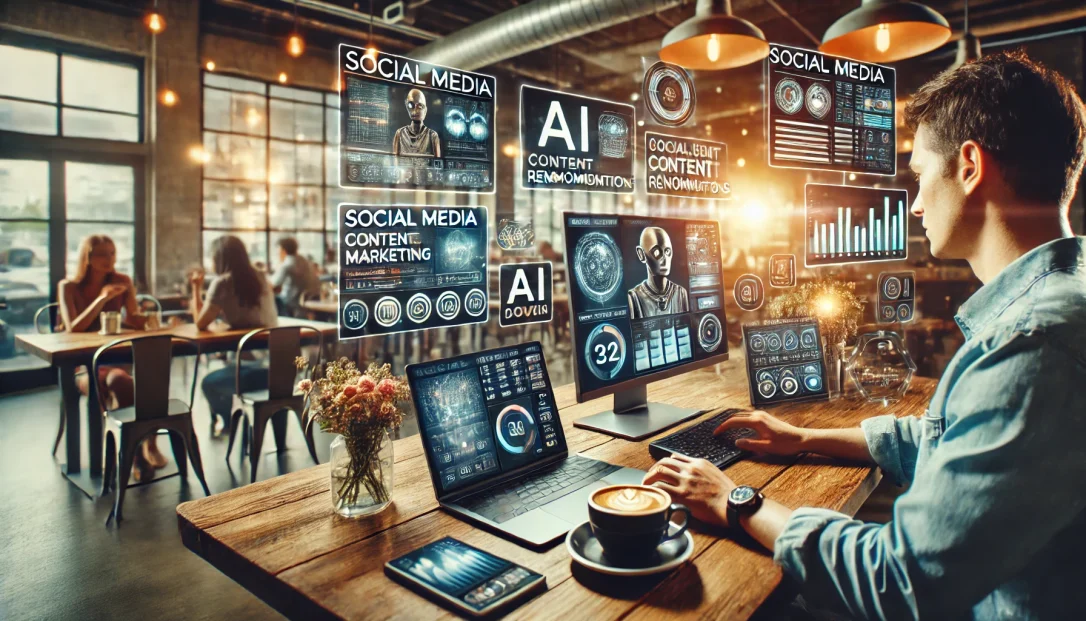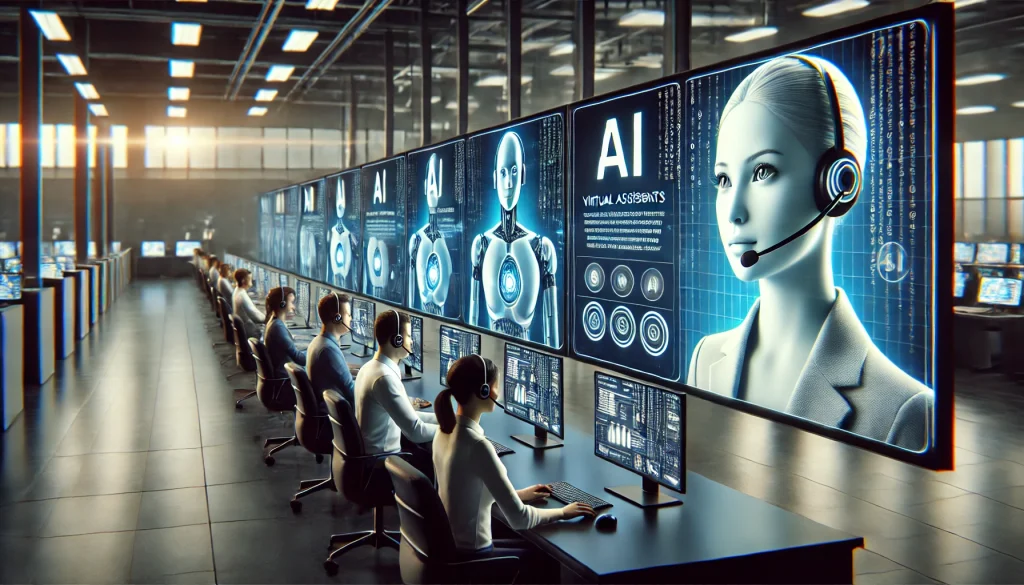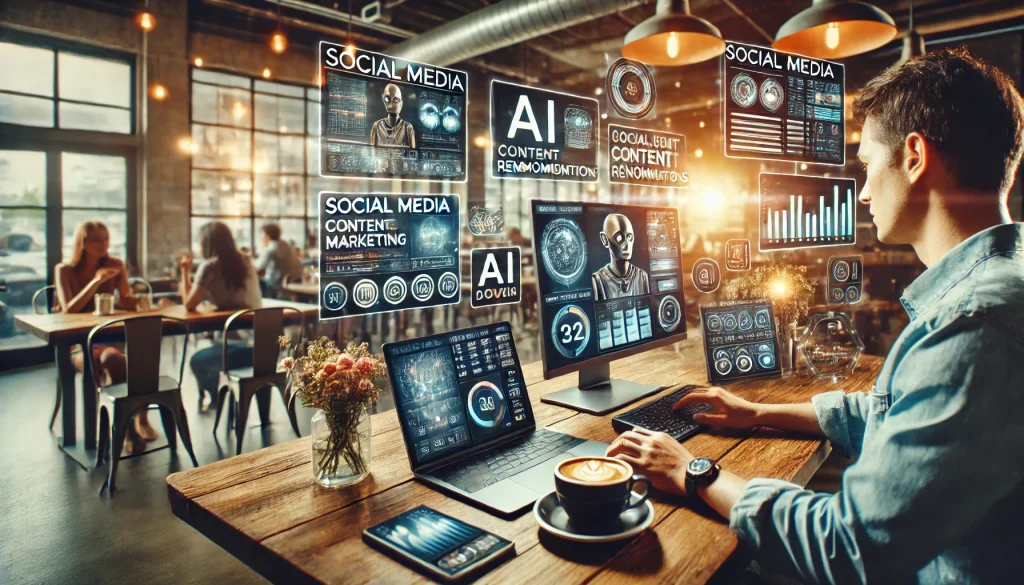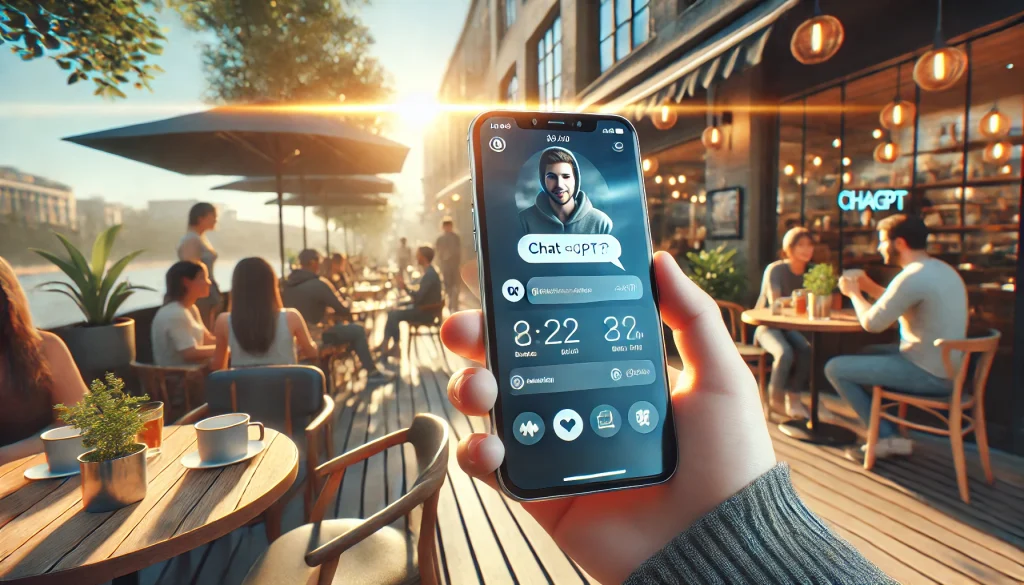Introduction
Social media marketing is an essential strategy for businesses and creators, but it can be time-consuming and challenging to manage effectively. Enter Artificial Intelligence (AI), a game-changer in the world of digital marketing. AI tools can automate tasks, analyze data, and even create content, making social media marketing more efficient and impactful. In this comprehensive guide, we’ll explore how to leverage AI for social media marketing, covering everything from content creation to performance analysis.
1. The Role of AI in Social Media Marketing
AI is revolutionizing social media marketing by automating processes, optimizing strategies, and enhancing engagement.
A. Automation
AI can handle repetitive tasks like scheduling posts, monitoring comments, and sending messages.
- Example: Tools like Hootsuite and Buffer use AI to schedule and post content automatically.
B. Data Analysis
AI tools analyze user behavior, track campaign performance, and provide actionable insights.
- Example: Platforms like Sprout Social offer detailed analytics to optimize social media strategies.
C. Content Creation
AI assists in generating engaging content tailored to your audience’s preferences.
- Example: Tools like ChatGPT help draft captions, blogs, and even video scripts.
2. AI-Powered Tools for Social Media Marketing
Here’s a list of top AI tools that can elevate your social media game:
A. Content Generation
- ChatGPT (OpenAI)
- Function: Drafts captions, generates blog posts, and assists with brainstorming ideas.
- Use Case: Quick content creation for various platforms.
- Canva
- Function: Provides design templates and AI-powered suggestions for graphics.
- Use Case: Create visually appealing posts and stories.
- Lumen5
- Function: Turns blog posts into engaging video content using AI.
- Use Case: Create dynamic video content for platforms like Instagram and TikTok.
B. Social Media Management
- Hootsuite
- Function: Automates post scheduling and monitors social media activity.
- Use Case: Streamline content management across multiple platforms.
- Sprout Social
- Function: Provides AI-powered analytics and social listening tools.
- Use Case: Gain insights into audience behavior and campaign performance.
C. Engagement and Interaction
- ManyChat
- Function: Automates customer interactions through AI chatbots.
- Use Case: Improve response times and engagement on platforms like Facebook and Instagram.
- HubSpot
- Function: Uses AI to personalize social media interactions.
- Use Case: Tailor responses and engage with your audience more effectively.
3. How AI Enhances Social Media Strategies
AI doesn’t just automate; it optimizes and personalizes your marketing efforts.
A. Audience Targeting
AI tools analyze user data to help you target the right audience with precision.
- Example: Facebook’s AI-driven ad platform allows you to target users based on behavior, interests, and demographics.
B. Content Optimization
AI analyzes which types of content resonate most with your audience and suggests improvements.
- Example: Tools like CoSchedule provide recommendations on the best times to post for maximum engagement.
C. Predictive Analytics
AI can predict trends, helping you stay ahead in your social media strategy.
- Example: Predictive tools analyze past campaign data to forecast future performance.
D. Sentiment Analysis
AI tracks and analyzes audience sentiment, providing insights into how your content is received.
- Example: Social listening tools like Brandwatch monitor brand reputation.
4. Real-World Applications of AI in Social Media Marketing
Here are some practical examples of how businesses are using AI:
A. Personalized Ads
E-commerce brands use AI to create personalized ads based on user behavior.
- Example: Dynamic ads on Facebook showcase products that users have previously viewed.
B. Chatbots for Customer Support
AI chatbots handle common customer queries, improving response times and customer satisfaction.
- Example: ManyChat automates responses on Facebook Messenger.
C. Influencer Identification
AI identifies influencers whose audience aligns with your brand, streamlining collaborations.
- Example: Tools like Upfluence analyze influencer metrics to find the perfect match.
D. Trend Forecasting
Brands use AI to identify emerging trends and create timely, relevant content.
- Example: AI-powered insights from platforms like Sprout Social help capitalize on trending topics.
5. The Future of AI in Social Media Marketing
As AI continues to evolve, its role in social media marketing will only grow.
A. Advanced Personalization
Future AI tools will provide even more personalized content, enhancing user engagement.
B. Voice and Visual Search
AI will enable social platforms to support voice and visual searches, making content more accessible.
C. AI-Generated Influencers
Virtual influencers powered by AI are becoming more prevalent, offering new ways to engage audiences.
D. Enhanced Real-Time Analytics
Real-time performance tracking will allow for instant adjustments to campaigns, improving results.
Conclusion
AI is transforming social media marketing, offering tools and strategies that boost efficiency, engagement, and ROI. Whether you’re automating tasks, optimizing content, or analyzing data, AI tools provide the edge you need to stay competitive. Start integrating these tools into your social media strategy today and watch your results soar.
In our next post, we’ll dive into AI-Driven Content Strategies – How to Plan, Create, and Optimize Like a Pro.







